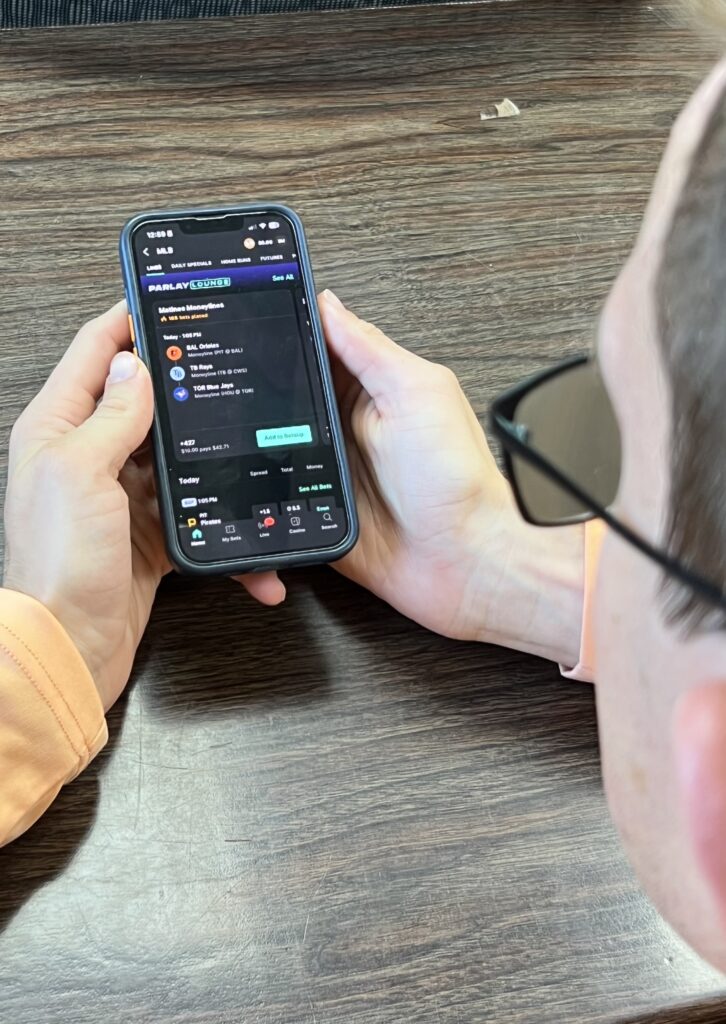Gambling is an addiction, just like alcohol or drugs. Recently, it has become normalized through advertisements on television, music platforms and social media. College students are in one of the most susceptible age groups for gambling. A study done by the National Council on Problem Gambling found that three out of four college students have gambled in the last year.
Sports gambling is under the larger umbrella of gambling, and unlike many forms of gambling, it can be done right from a phone. Organizations bank on the ease of access to draw in gamblers. There is no need to drive to a casino when the gambling is one click away. Sports betting has only increased accessibility when it was legalized by the Supreme Court in 2018. The industry made more than $268 billion dollars between 2018 and 2023, nearly $4 billion dollars in tax revenue.
When it comes to NCAA sanctioned sports, sports betting is a hard no. College athletes, coaches or other staff are not permitted to bet or provide information that could influence a bet. Student athletes are required to go through compliance meetings that lay out all they can and can’t do in regards to betting.
Not only does sports gambling negatively affect students involved in it, but also student athletes not involved. Students could be harassed and cyber bullied by bettors when they lose. The NCAA took a survey of campus administrators in September 2023 and found that 10% of division one respondents knew that athletes were being harassed online or in-person by gamblers. Sports gambling puts a pressure on athletes to win or face harassment.
Eastern track athletes Helena Stoffel and Johnathon Beltran Garcia both agreed that the added pressure of gamblers would affect track athletes. “It’s not fair to those people running, they should be able to run freely and enjoy the run,” Beltran Garcia said. The unnecessary pressure of gamblers diminishes the love of the game. “It negatively affects the sport confidence wise. People that don’t get bet on as much start to think bad of themselves,” Stoffel stated. Not only does it affect athletes on the field but in their day to day lives.
Another aspect of sports gambling is that bets ruin the integrity of the game. Eastern Soccer player Will Schade said, “You see it with referees. They’ll make a bet on the game, then negatively impact the game so they win their bet.” Sports gambling takes away the genuine drive for the game. How can the viewer be sure that anything they watch is real if the people involved in it are pulling the strings?
With the negative consequences of sports gambling in mind, how do college students need to change their relationship to sports, athletes, and gambling? What kind of athletic culture does the Eastern student body want to create?

